Groundbreaking Workshop on AI and Technology-Facilitated Gender-Based Violence at AWiM24
Trending
Friday May 30, 2025
Trending
Chimwemwe Mhango, is an aspiring Candidate for the Tchalo ward in Rumphi, a remote district located in Northern Malawi.
As a woman, she understands the challenges women face in the society. ‘’I want to change things for the better, and I encourage fellow women and everyone in the ward to support my vision,” she said.
Rumphi has a population of more than 128,000 people. The Northern region is generally perceived as a patriarchal society because women are seldom seen as leaders. At present, there is no female member of parliament or councillor in the district.
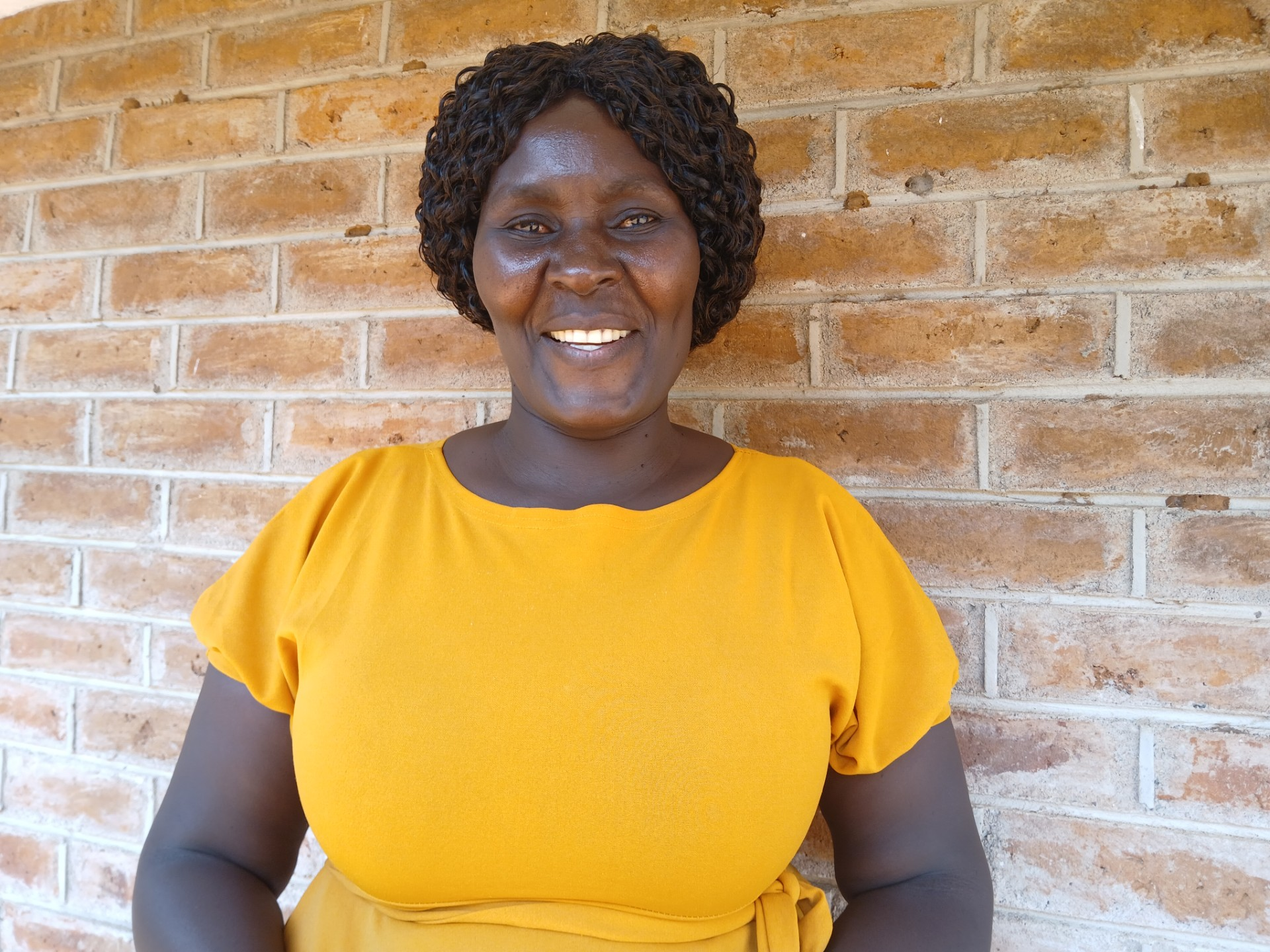
Chimwemwe Mhango, an aspiring candidate for the Tchalo ward in Rumphi, Malawi.
Photo Credit: Women’s Legal Resources Centre WORLEC on Facebook
To participate in the election as a Candidate, Mhango must overcome significant hurdles. “Some of my contenders have already started intimidating me, tarnishing my reputation and altering demining words against me, but I will not relent, I will keep pushing,” she affirms.
Rumphi District Commissioner, Emmanuel Bulukutu attributes this gender imbalance to cultural norms and has called for a shift in mindset so that women can be entrusted with leadership roles.
“Women should submit strong manifestos, develop effective strategies, and receive support from political parties,” Bulukutu said. “There is also a need to build voters’ trust in women.“.
As Malawi gears up to hold its seventh General Elections on Tuesday, September 16, 2025, marking another chapter in its multi-party political system, which began in 1994, the need to improve on the participation of women in politics cannot be overemphasised. Despite efforts to encourage women’s participation in these elections, either as voters or candidates, a significant gap remains, with fewer women actively taking part in the process
This trend continues to hinder the nation’s progress towards gender equality in political representation.
In this current era of democracy, five out of the 28 districts namely, Dedza, Salima, Chitipa, Karonga, and Rumphi; are without a single female representative in Parliament. This glaring disparity persists even though women make up over 51% of the Malawian population, as confirmed by the 2018 Population and Housing Census (PHC), which reported that the female population stands at 9,042,293, compared to 8,521,456 males.
The issue of women’s underrepresentation in politics goes beyond Malawi. Across Africa, the journey towards gender parity in political spaces remains a long and winding road. While countries like Rwanda, Namibia, and Senegal have made notable progress, many others lag far behind.
Across the board, the problem is rooted in deeply entrenched gender stereotypes that have long confined women to traditional roles.
In Malawi, it is still widely believed that “a woman’s place is in the kitchen,” limiting the perception of women as leaders. In a Gender equality and women’s empowerment report published by USAID from 2017 to 2020, Women and girls in Malawi fare worse than their male counterparts on socio-economic indicators including literacy, secondary and tertiary education enrolment and completion, wage equality, political participation, and literacy.
Cultural norms, financial constraints, lack of political mentorship, and a weak support system are just some of the insurmountable hurdles that impede women’s ambitions. In many cases, women who show interest in politics are met with intimidation, and the political arena remains heavily male-dominated.
One of the primary obstacles to achieving gender parity in politics is the persistence of gender stereotyping. Women, despite their numbers, face numerous challenges that prevent them from fully participating in the political process.
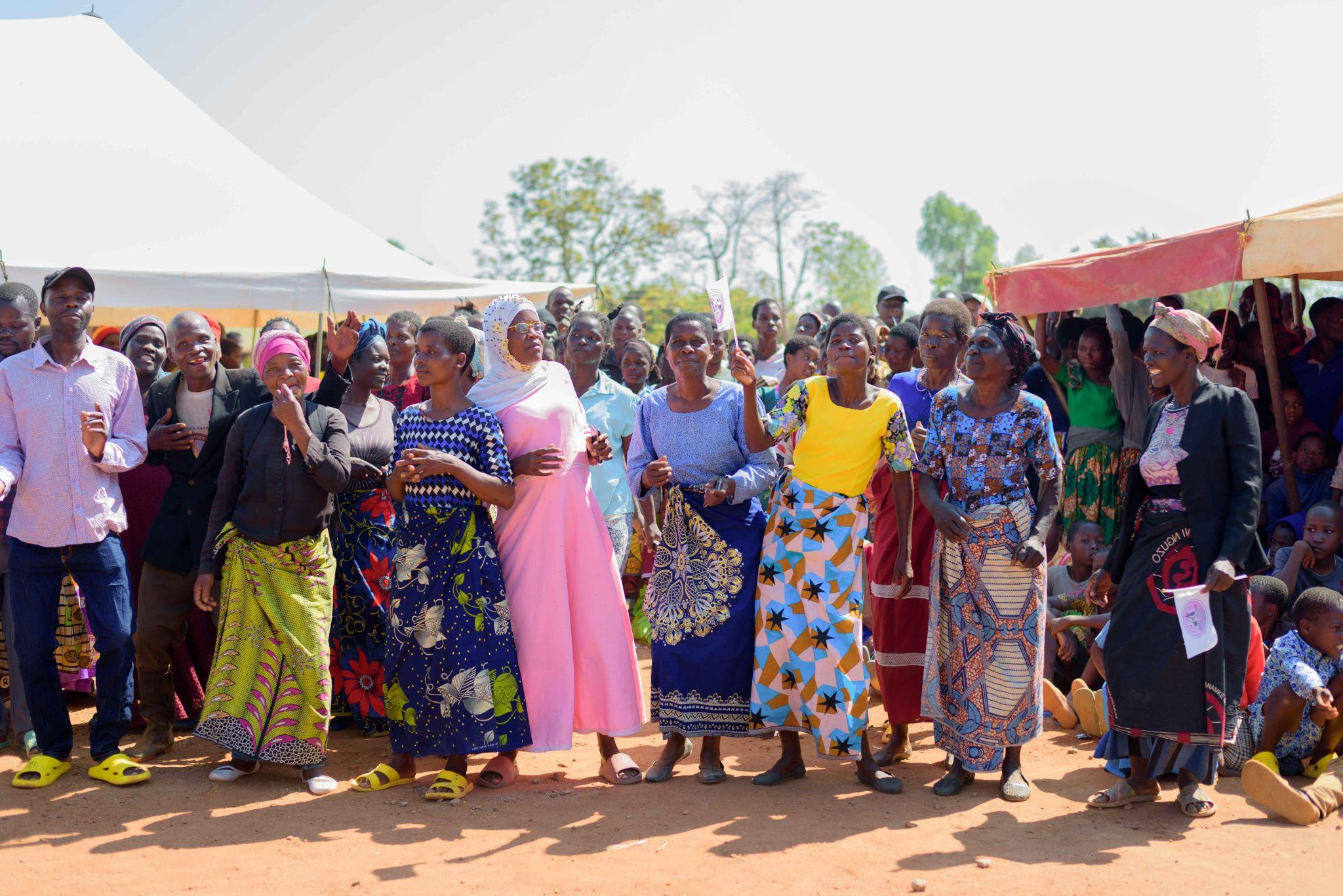
Photo Credit: Precious Kumbani for AWiMNews
In 2016, the Inter-Parliamentary Union published a global study on Violence Against Women in Politics (VAWP), based on interviews with women MPs from around the world.The study showed, strikingly, that more than 80% of the women interviewed had experienced some form of psychological violence in the course of their work in parliament.One in three had experienced some form of economic violence, one in four some form of physical violence, and one in five some form of sexual violence.
This phenomenon was extensively discussed during an event dubbed Women’s Economic Empowerment: Focus on Gender Equality, Violence Against Women in Politics (VAWP) and the Promotion of Political Participation of Women in elections hosted by UN Women East and Southern Africa Office (ESARO), Women’s Political Participation (WPP) Unit and SADC Lawyers Association as part of the SADC Lawyers’ Association (SADC LA) general meeting and conference, held from the 28th to 2nd August 2024 at the Avani Victoria Falls Resort in Livingstone Zambia.
This meeting provided a platform to raise awareness on women’s political participation issues in the SADC region with parliamentarians from the region reiterating that violence against women in politics is a serious issue impacting the realisation of women’s political rights and a human rights violation.
“Violence against women in politics is not a distant and abstract issue. It is in fact a harsh daily reality for countless women striving to contribute to the SADC and African political landscape’, said Yvonne Dausab, Member of Parliament and Minister of Justice of the Republic of Namibia. “It’s a pervasive issue that undermines democracy and hinders the political participation of half of our population”, she added.
Participants reflected on the fact that much remains to be done in affirming women in politics in the SADC region as they also took note of the strides and progress made in the region as pertains to women’s political participation
A 2023 study on Violence Against Women in Politics (VAW-P) by the Women’s Legal Resources Centre (WOLREC), one of the local organisations in Malawi working on issues of gender, highlighted some of the limitations women face when participating in politics. These include economic, socio-cultural, and political factors, with male dominance being a significant barrier.
The study identified common types of VAW-P, such as sexist insults, physical attacks, and bullying. The findings show that sexist remarks are especially prevalent during campaign rallies and community meetings, where women are subjected to abusive language, name-calling, and gender-based intimidation.
According to WOLREC Executive Director Maggie Kathewera Banda, “Women, irrespective of their political affiliations, have been subjected to intimidation, harassment, and physical violence solely based on their gender.”
The report highlights common forms of VAW-P, such as sexist insults, physical attacks, and bullying during campaign rallies and community meetings.
Female candidates are often targeted with abusive language and gender-based intimidation, which not only demoralises them but also discourages them from continuing their political careers.
This form of violence takes a significant emotional toll on women candidates, leading many to withdraw from politics altogether.
Grace Makata (not her real name) for instance, is a female councillor from Blantyre who has chosen not to run for re-election in 2025 after the trauma she experienced during her 2019 campaign. She recounted how personal attacks nearly destroyed her marriage.
“I almost lost my marriage as people were telling my husband that female politicians are prostitutes. Politicians travel a lot, meet many people, and some people feel that gives us more power to disrespect men,” she revealed.
With only six years remaining until the 2030 deadline for the Sustainable Development Goals (SDGs), many African countries, including Malawi, are unlikely to meet the target of 50% female representation in decision-making positions, as outlined in SDG 5.5 on Women’s Political Participation (WPP).
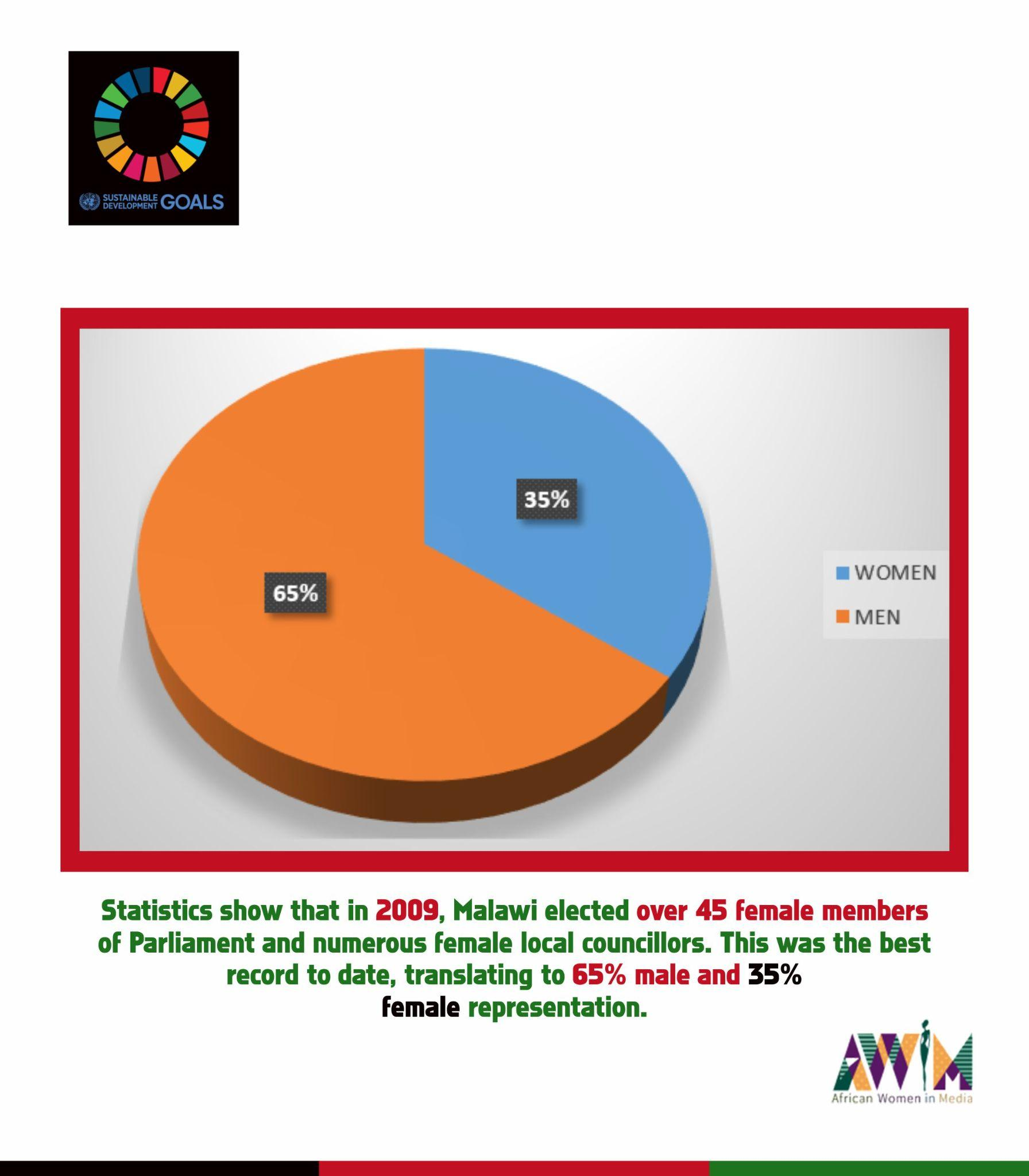
According to the Women’s Political Participation (WPP) Africa Barometer 2024, women currently hold just 26% of seats in Africa’s lower houses of parliament and 21% in the upper houses.
This represents only a one-percentage-point increase from 2021. According to the report, at this rate, it could take until 2100 for African countries to achieve gender parity in their parliaments, assuming the slow progress continues.
This trend underscores the need for more proactive measures, such as the introduction of quotas, to accelerate the pace of change. There are also success stories that African countries could look to and learn from each other as examples of best practices.
As indicated in the WPP Africa Barometer 2024, systems such as Quotas have been a game-changer in countries that have adopted them, ensuring that women have a seat at the table in political decision-making.
Rwanda and Namibia, for instance, have achieved 61% and 51% female representation in parliament, respectively. Both countries adopted the Proportional Representation (PR) system, which allows for the implementation of gender quotas to ensure women are represented. Senegal, too, has made strides by introducing a mixed electoral system.
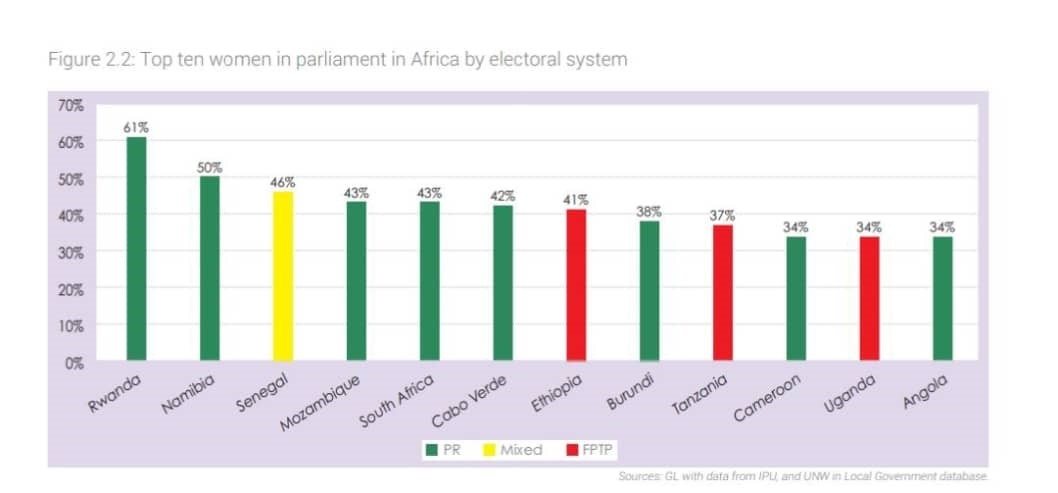
Undule Mwakasungula, a governance, human rights and political Analyst supports the idea of introducing a quota system in Malawi to accelerate progress toward gender parity.
“Quotas could help create opportunities for women who are held back by barriers, making it easier for them to compete in the male-dominated political space,” he explains.
Mwakasungula stresses that while merit-based elections are crucial, Malawi’s political playing field remains uneven and skewed against women.
He adds that quotas have worked well in other countries like Rwanda and Uganda to increase female political representation, showing that it could be an effective tool in levelling the playing field, hence could help Malawi achieve gender balance faster.
In addition to advocating for quotas, Mwakasungula calls on the media to play a proactive role in challenging social norms that prevent women from participating in politics.
He also highlights the need for financial support, campaign training, and mentorship programs for female candidates.
“It is essential that women have access to resources and support to ensure they have a fair chance in elections. Political parties should be encouraged to nominate more women candidates and provide them with full financial backing,” he notes.
The Malawi Electoral Commission (MEC) has responded to calls for action by offering a 50% discount on nomination fees for female aspirants in the 2025 elections.
MEC Chairperson Annabel Mtalimanja hopes that this move, which was also implemented in the previous election, will encourage more women to enter the race. The discount is seen as a positive step toward promoting gender equity in the political process.
Statistics show that in 2009, Malawi elected over 45 female Members of Parliament and numerous female local councillors. This was the best record to date, translating to 65% male and 35% female representation.
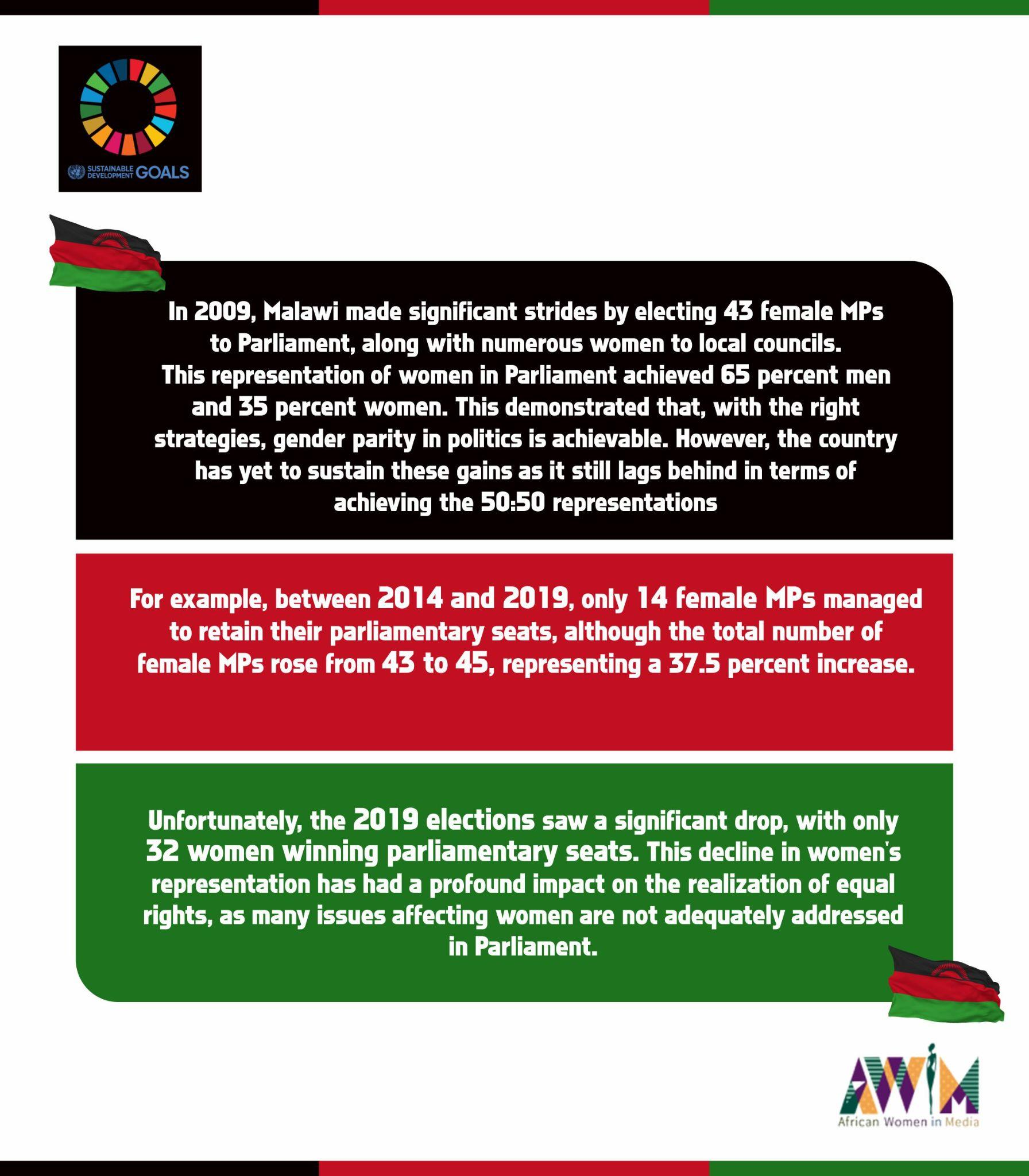
Political Commentators say this shows that with the right strategies, significant advancements can be achieved.
However, the figures have been declining over the years with only 32 women securing seats in Parliament in the previous election which took place in 2019.
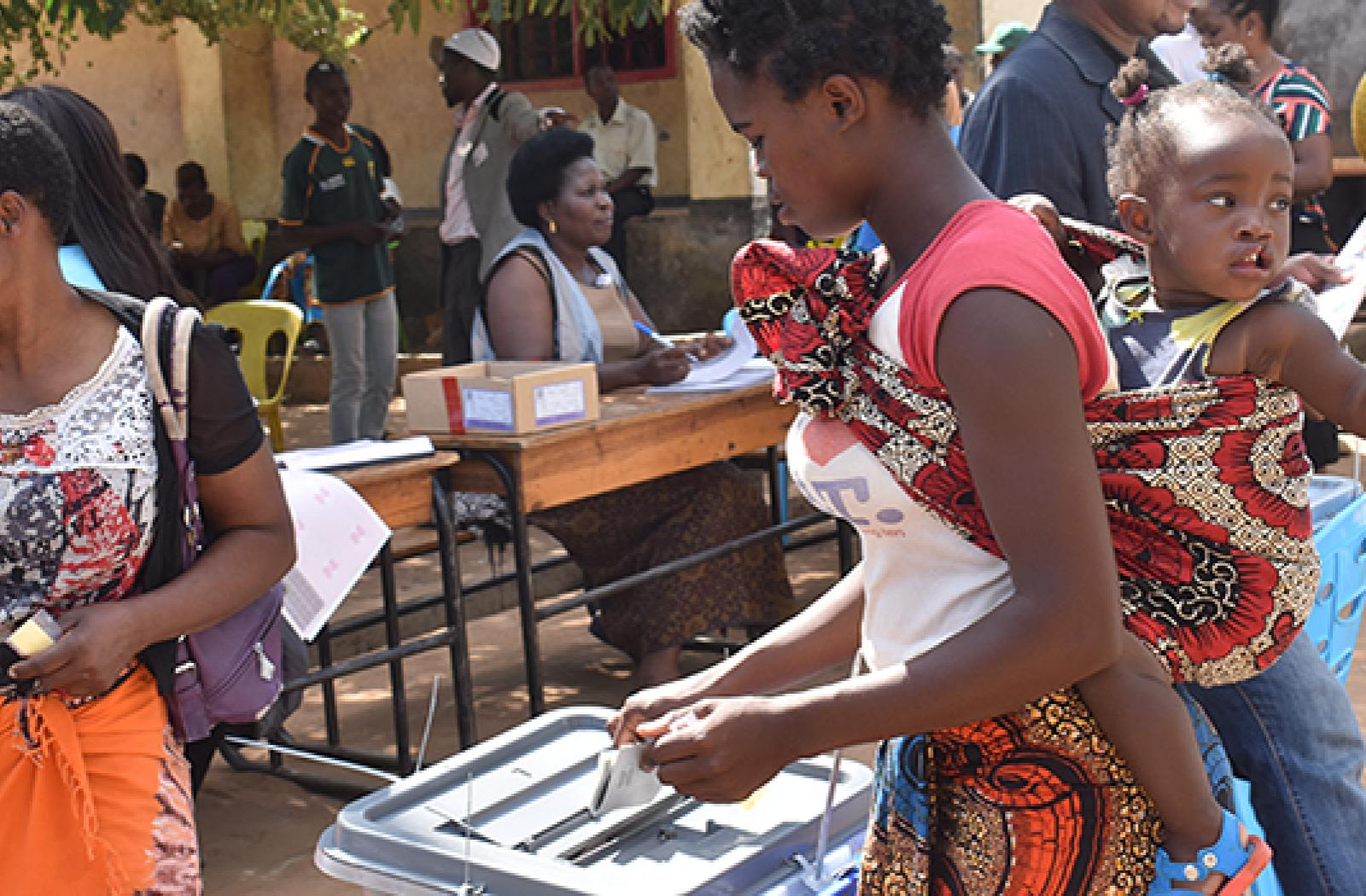
Malawian women casting their votes at the 2019 general elections.
Photo Credit: The commonwealth.org
This setback has had far-reaching consequences, as issues affecting women often go unaddressed when they are not adequately represented at decision-making tables.
For example, between 2014 and 2019, only 14 female MPs managed to retain their parliamentary seats, although the total number of female MPs rose from 43 to 45, representing a 37.5 percent increase.
As European Union Ambassador to Malawi Rune Skinnebach points out, gender equality in politics is not just a matter of principle, but also a matter of social justice and development.
“Gender equality is not simply a moral duty, but it is a matter of social justice. Granting the same rights to men and women makes our societies richer and more secure. It is a matter of development, not purely a matter of principles,” he emphasises.
He points out that as Malawi approaches the 2025 General Elections, it is crucial to learn from past experiences to ensure that more women and young people are elected to political positions.
“When we talk about political positions, I want all of us to understand that we are not only talking about Parliament. Political positions are comprehensive, and include all levels such as the VDCs, the ADCs, the Local Government, the seats within political parties, and even the Presidential vote,” he says.
The E.U ambassador, Skinnebach, emphasises that for a democracy to be truly representative, men and women must participate equally in political life and decision-making.
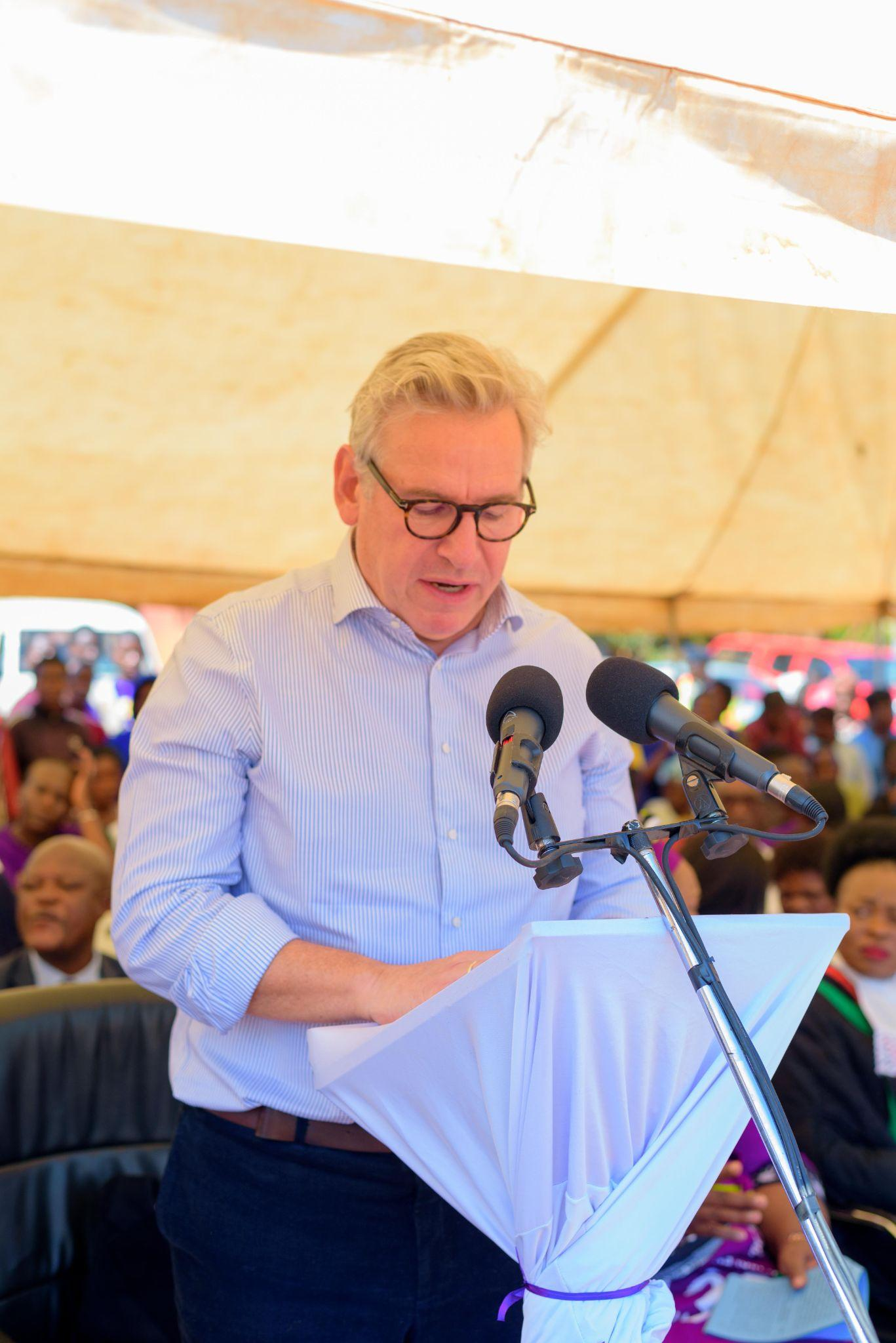
Rune Skinnebach, European Union Ambassador to Malawi.
Photo Credit Precious Kumbani for AWiMNews
Moreover, the underrepresentation of women hinders the country’s overall development, as women, who form the majority of the population, are not fully engaged in decision-making processes.
The Maputo Protocol on Women’s Rights, to which Malawi is a signatory, guarantees extensive rights to women, including the right to participate in political processes and to enjoy social and political equality with men.
The protocol, widely regarded as one of the most progressive human rights instruments globally, covers a wide range of civil, political, economic, social, cultural, and environmental rights. Although Malawi ratified the protocol in 2005, significant challenges remain in translating these commitments into meaningful change.
The government of Malawi acknowledges these challenges, and with support from various organisations, it is implementing programs aimed at enhancing women’s participation in the upcoming elections. For example, Oxfam in Malawi and WOLREC are collaborating on the 50:50 campaign to promote women’s political transformational leadership.
These efforts include providing financial, material, and moral support to women candidates, regardless of their political affiliation.
Additionally, the government recently launched the Political Empowerment of Women (PEW) Strategy, a key initiative for advancing the 50:50 campaign.
Malawi’s Minister of Gender, Community Development, and Social Welfare Jean Sendeza has set a target of achieving 35% female representation in Parliament in the 2025 elections.
“It is everyone’s responsibility to create space for women,” she noted.
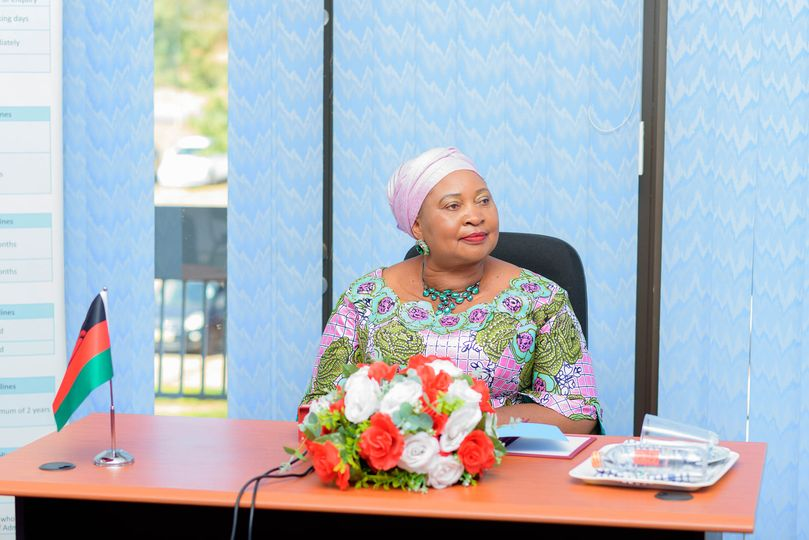
Jean Sendeza, Malawi’s Minister of Gender, Community Development, and Social Welfare
Photo Credit: Malawi Government facebook page
She calls on all stakeholders to play their part in creating space for women in the political sphere.
She added that national goals and policies, such as the National Gender Policy, the Gender Equality Act of 2013, and the National Strategy on Political Empowerment of Women, all emphasise the importance of women’s active participation in politics.
“These frameworks underline that women’s political involvement is not just a right, but a vital component of achieving good governance and sustainable development,” says Sendeza.“
According to the Minister, the government is further working closely with political parties, NGOs, civil society organisations, and communities to build a more inclusive political landscape.
For example, she said, the European Union through the Promoting Gender Transformative and Youth Inclusive Democracy Project has already pumped in over EUR 3.5 million to support efforts toward greater gender parity in the 2025 elections.
Through the project, implemented by Oxfam and WOLREC, the stakeholders aim to enhance the inclusion of women, youth, and marginalised groups in decision-making processes.
As Oxfam Country Director Lingalireni Mihowa puts it, “Malawi cannot claim to enjoy true democracy if women and other sectors of society are sidelined.” She emphasised the need to work with political parties, aspirants, and communities to drum up support for women, young people, and persons with disabilities in the lead-up to the 2025 elections.
For these efforts to succeed, political leaders must commit to upholding the principles of equality and inclusivity within their parties and campaigns, fostering an environment free from discrimination and violence. As a nation, Malawi must reaffirm its resolve to create a society where every individual, regardless of gender, can participate in politics without fear of reprisal or harm.
In October 2024, the Convention on the Elimination of All Forms of Discrimination Against Women (CEDAW) Committee considered General Recommendation 40 (GR40), which sets a goal of 50 percent representation of women, moving beyond the 30 percent target toward full and inclusive participation. GR40 seeks to establish parity as a core principle of governance and a force for transformative change.
However, with only six years remaining until 2030, many African countries, including Malawi, are unlikely to meet the 50 percent target set in SDG 5.5 on Women’s Political Participation.
While international agreements and national policies create a foundation for change, their success relies on practical, on-the-ground efforts to dismantle the barriers women face in politics.
As the world moves toward gender parity in politics, it is essential for Africa’s political leaders to uphold the principles of equality and inclusivity within their parties and campaigns and create a society where every individual, regardless of gender, has the opportunity to participate in political life without fear of reprisal or harm.
Malawi’s path toward gender parity in politics remains long and challenging, but with sustained effort, strategic planning, and collective action, the dream of a 50:50 representation of women in politics can become a reality.
“African Women in Media’s Gender Stories Editorial Fellowship, supported by Fojo Media Institute”
We’re not gonna spam. We’ll try at least.

Copyright 2020. African Women In Media
Copyright 2020. African Women In Media
Recent Comments